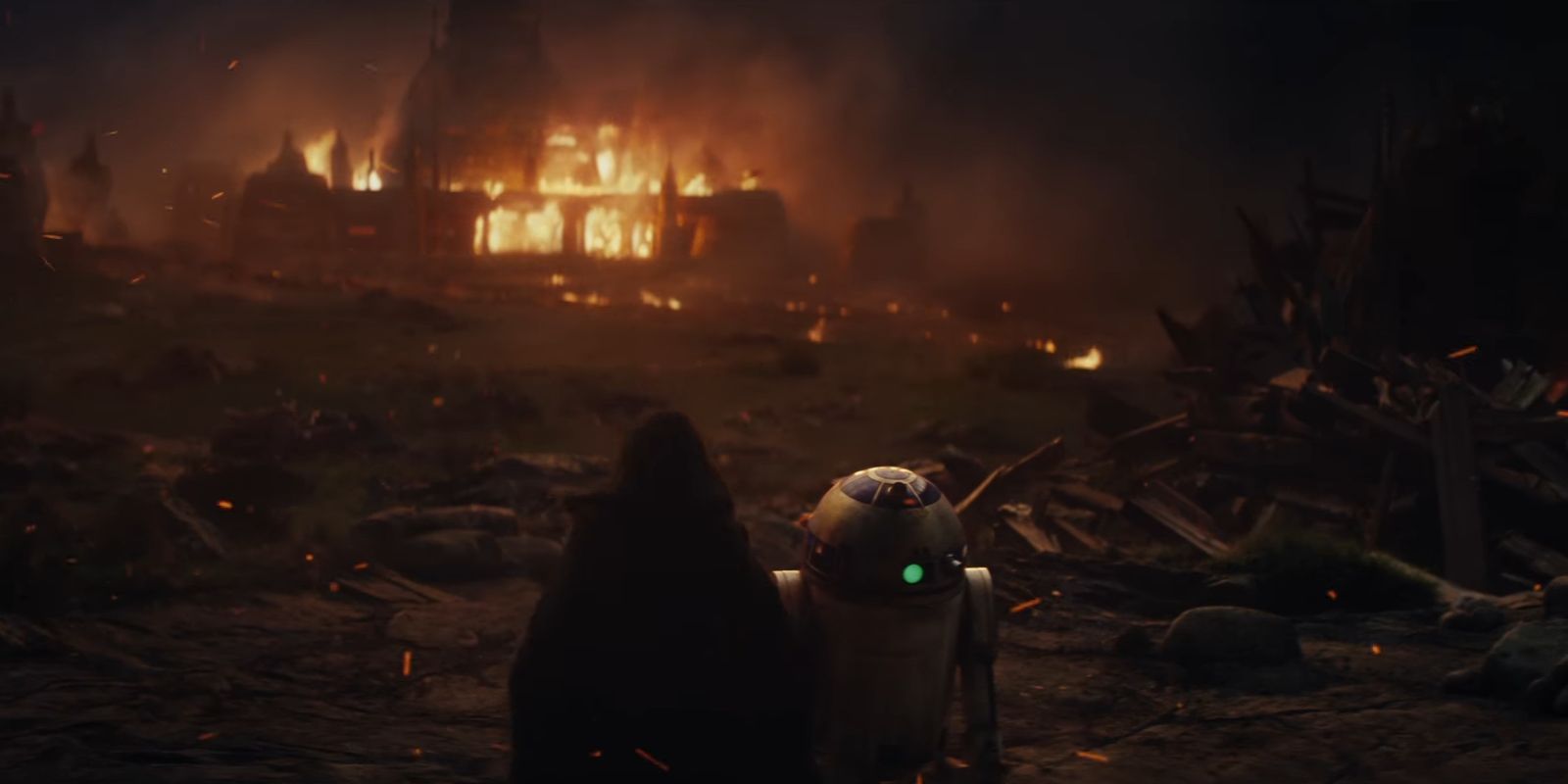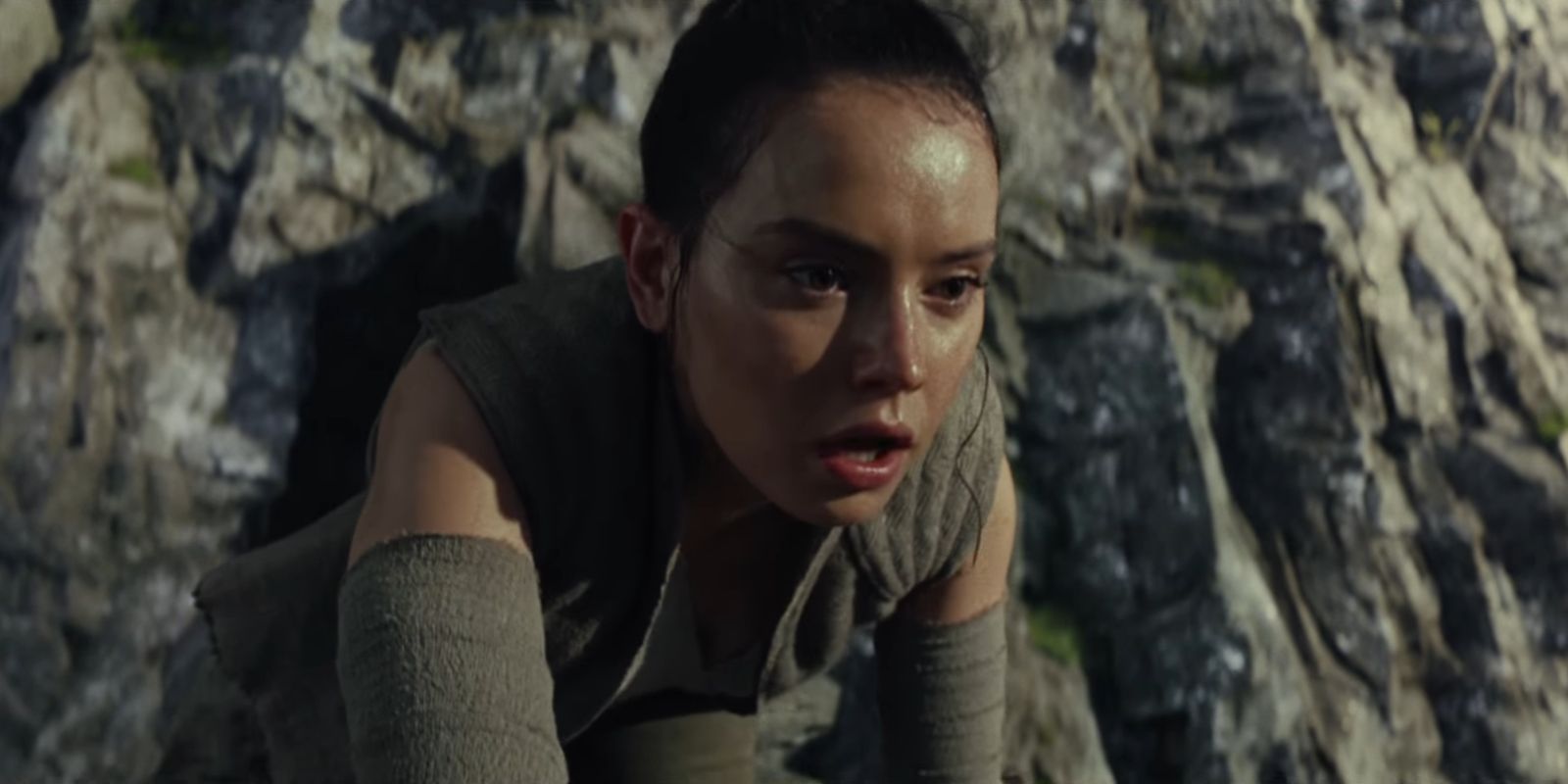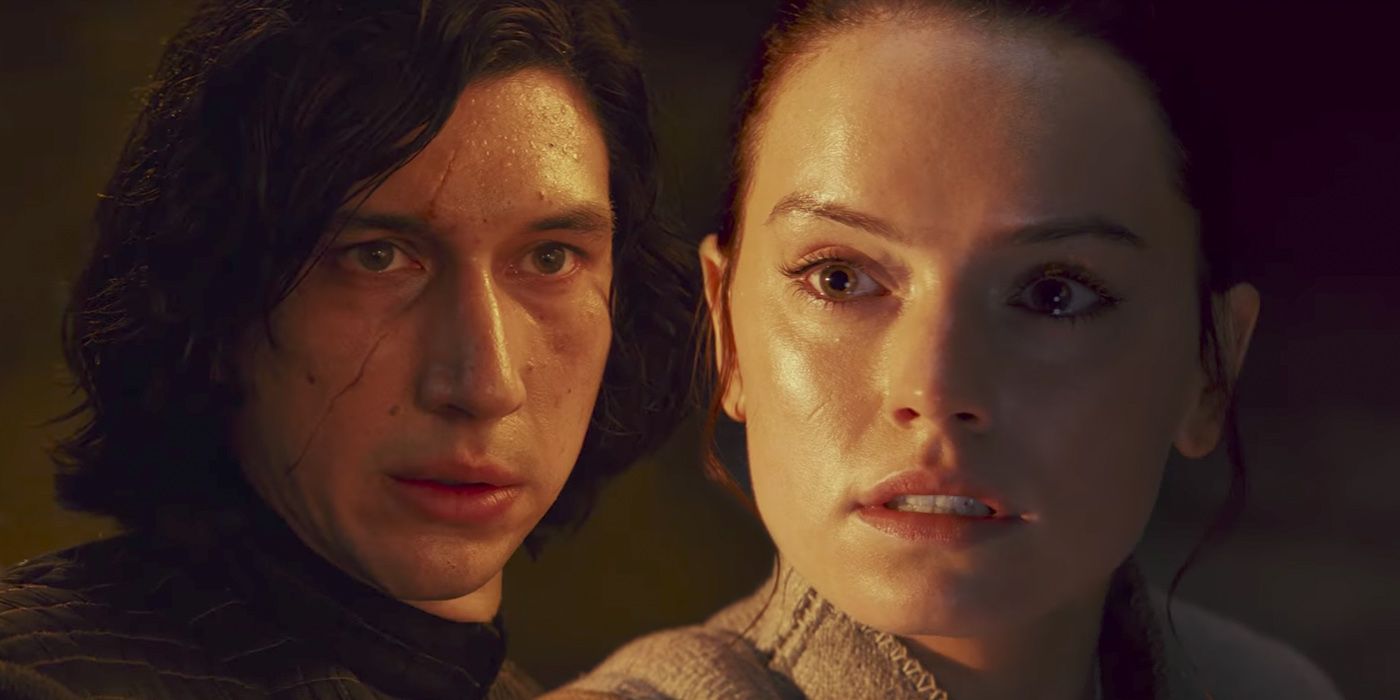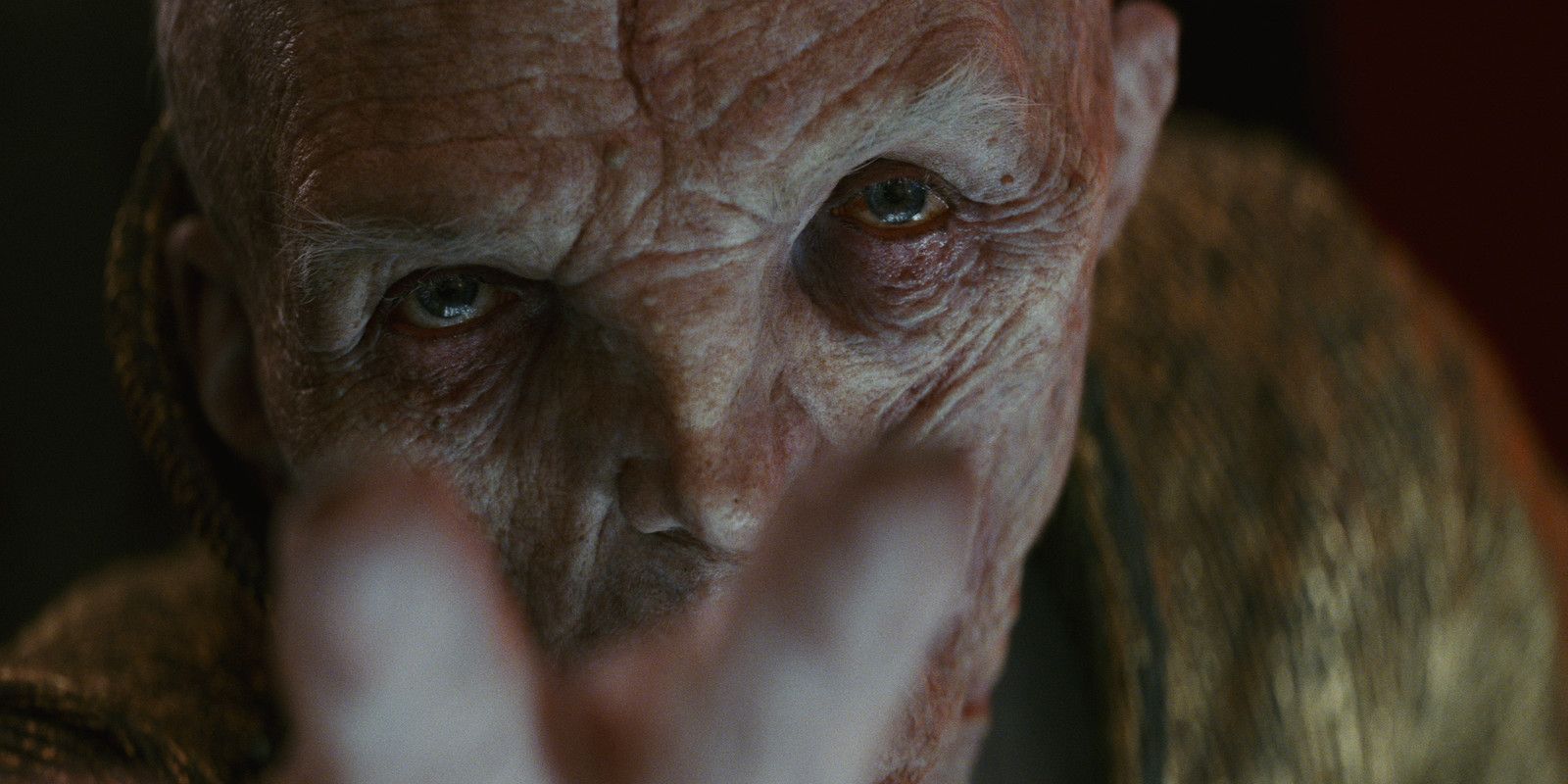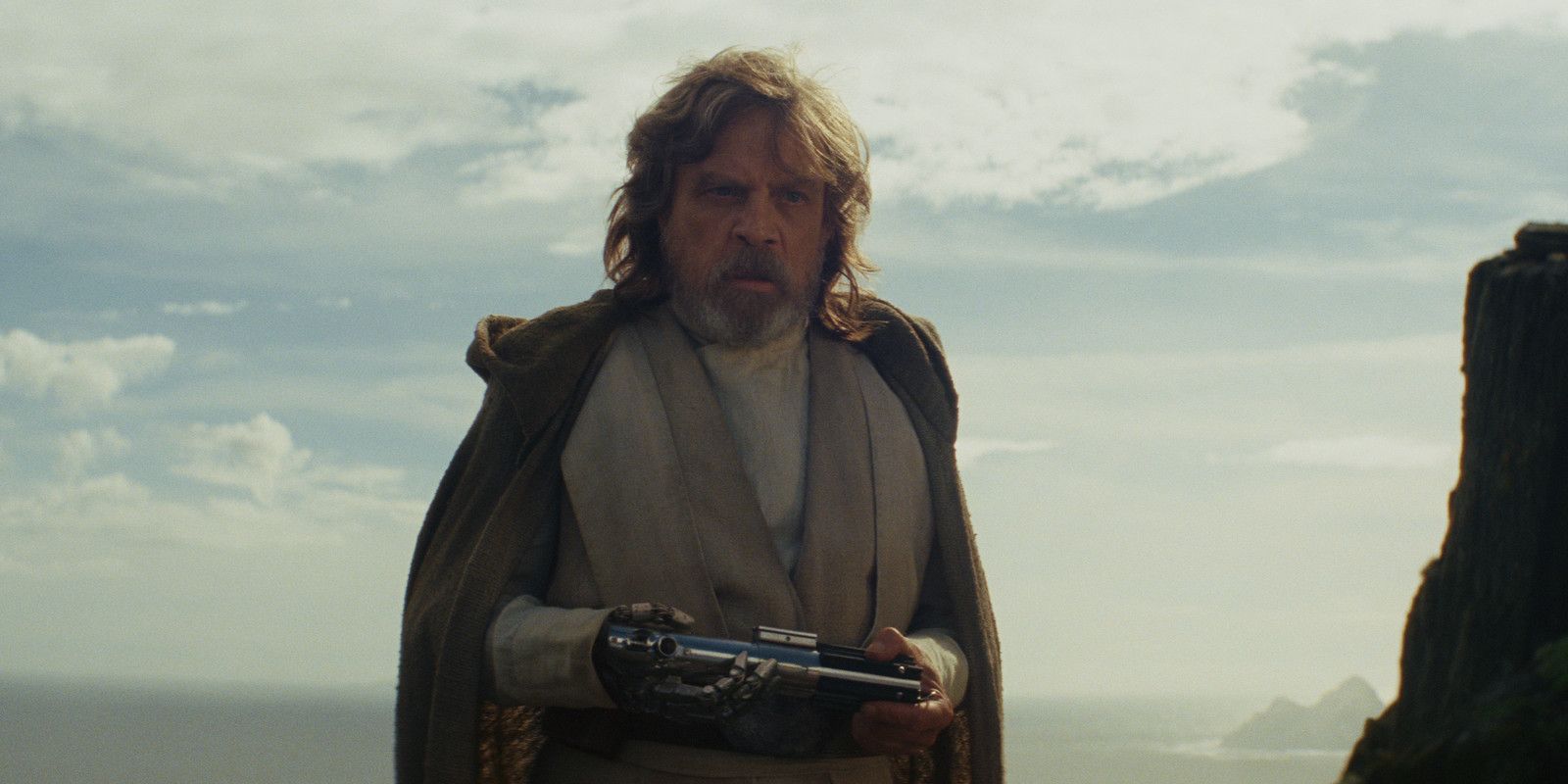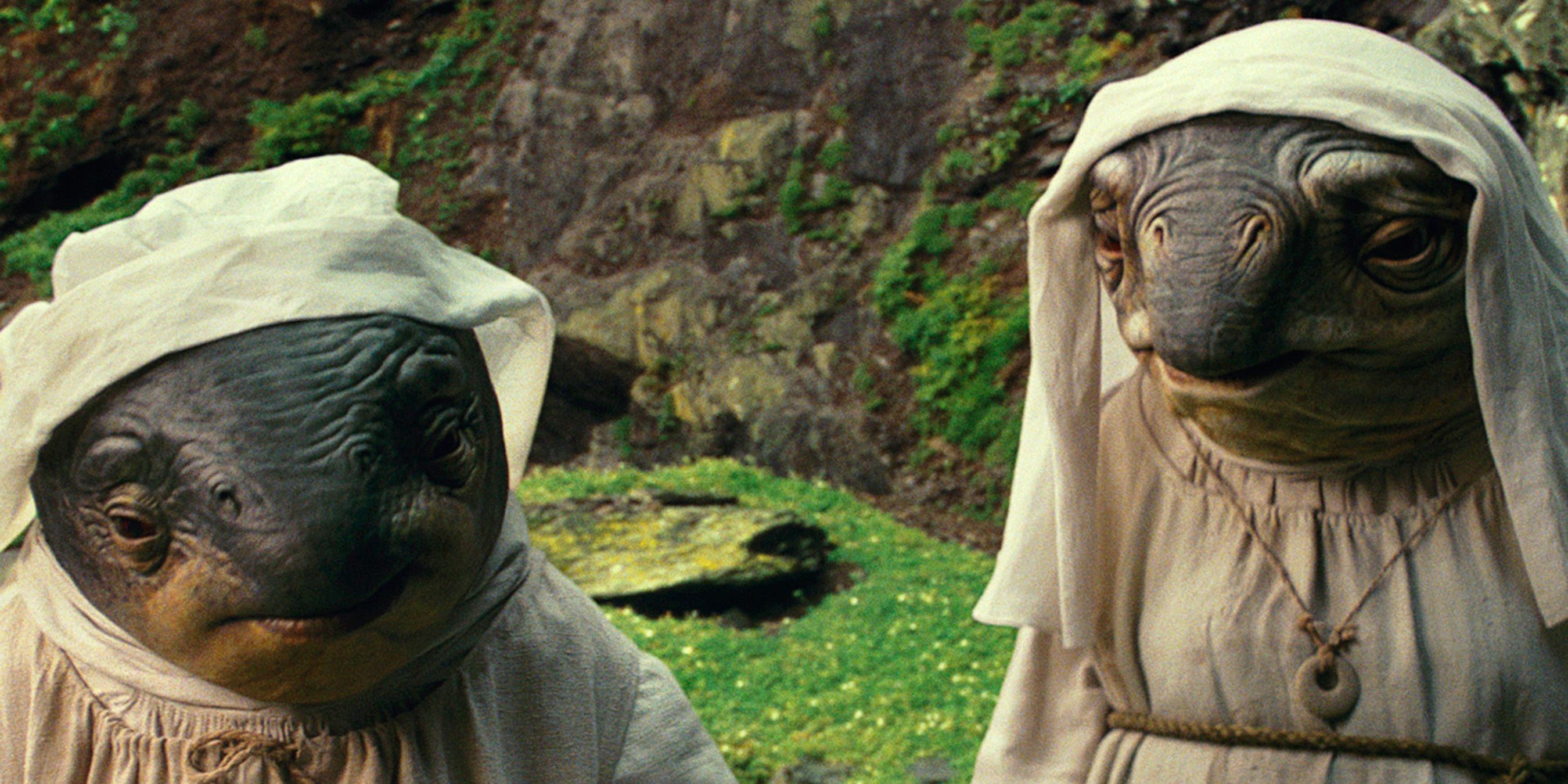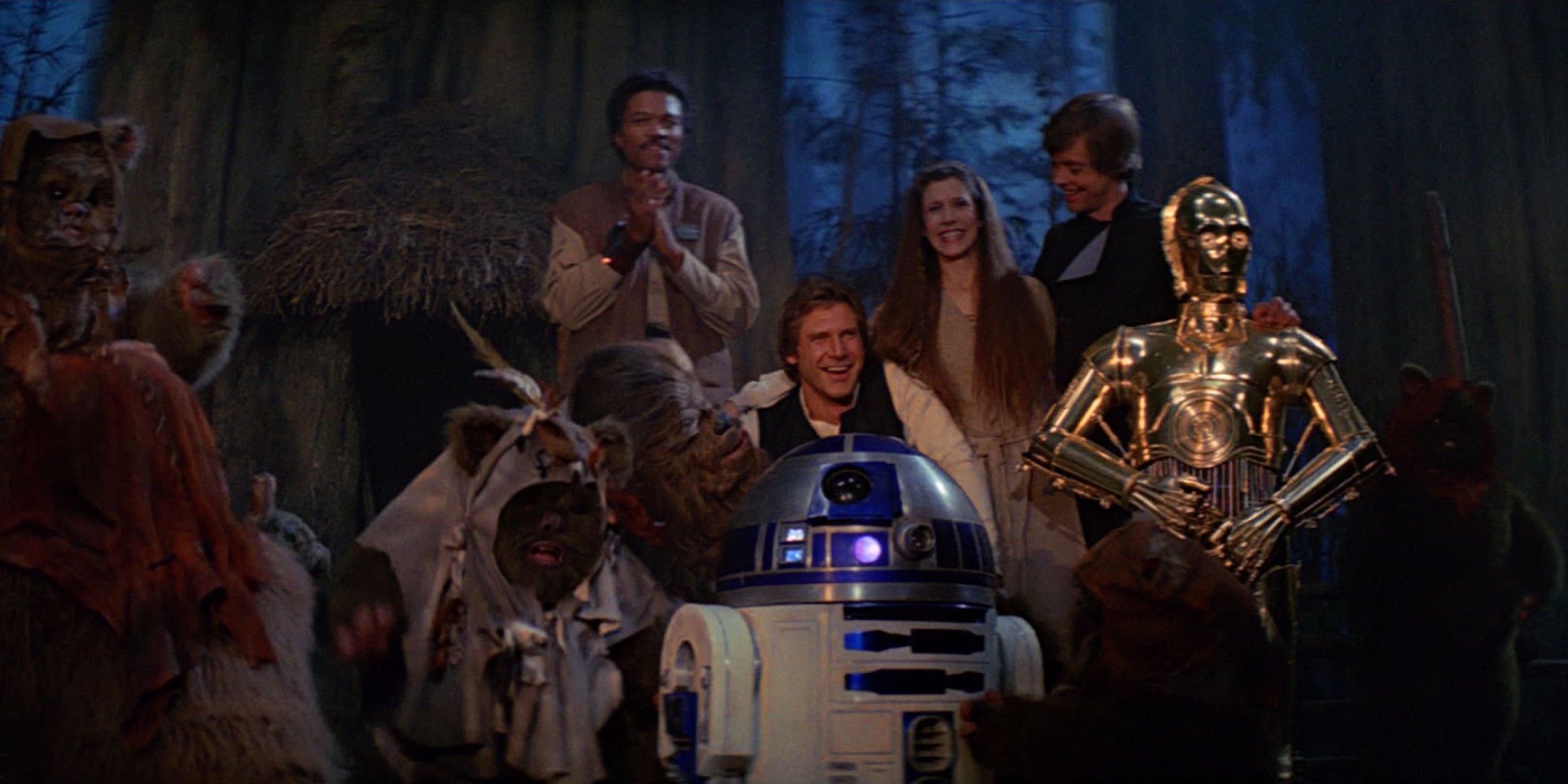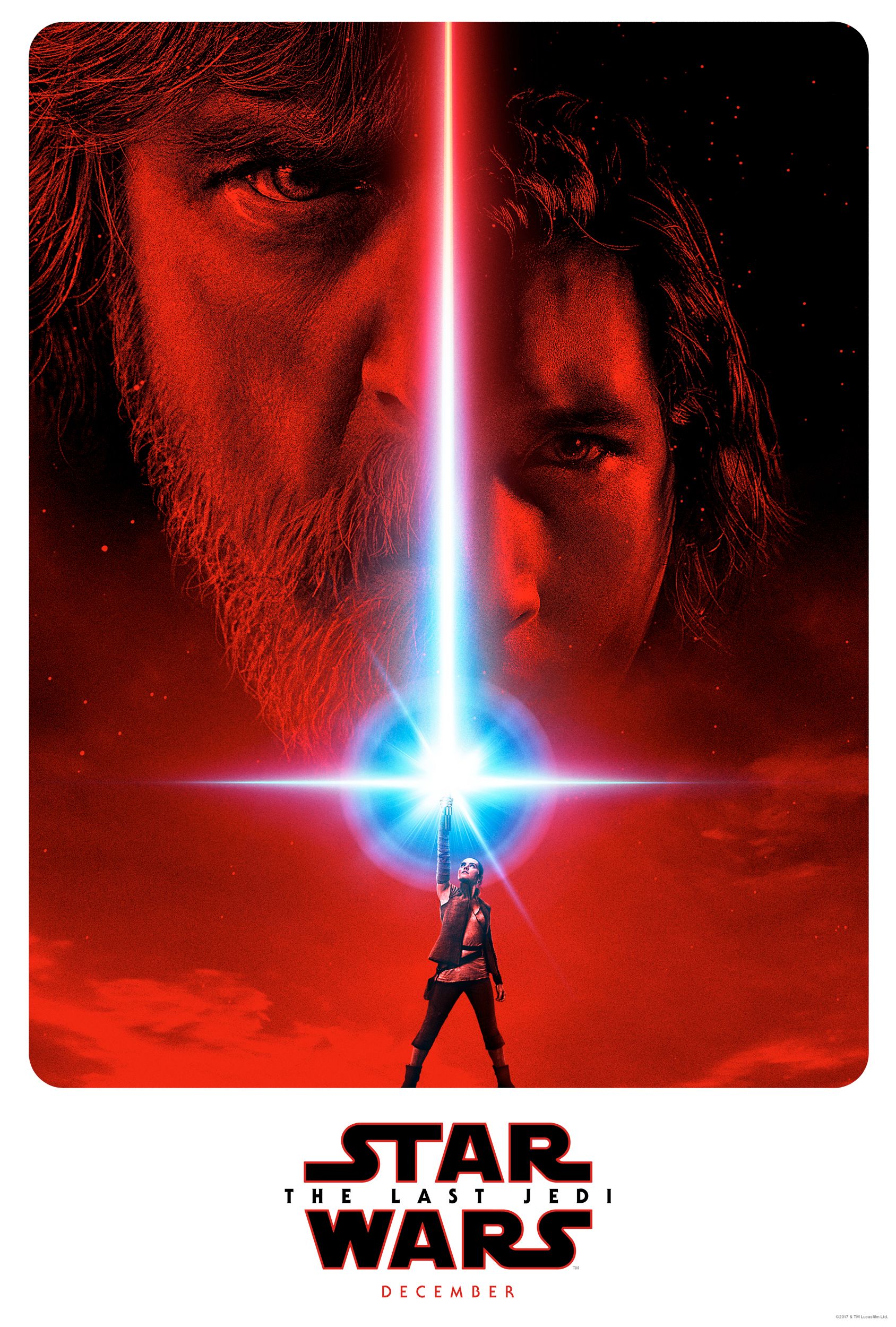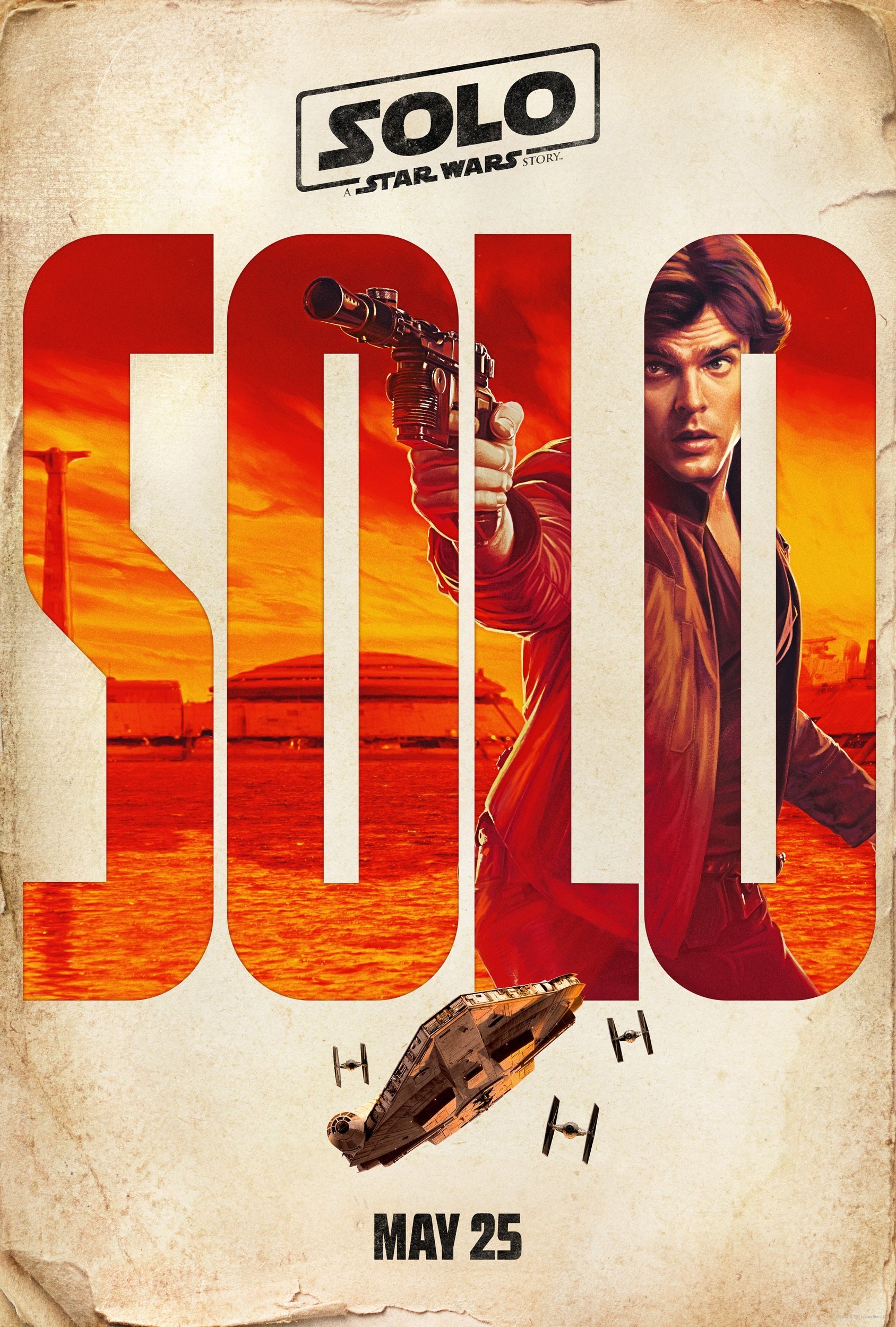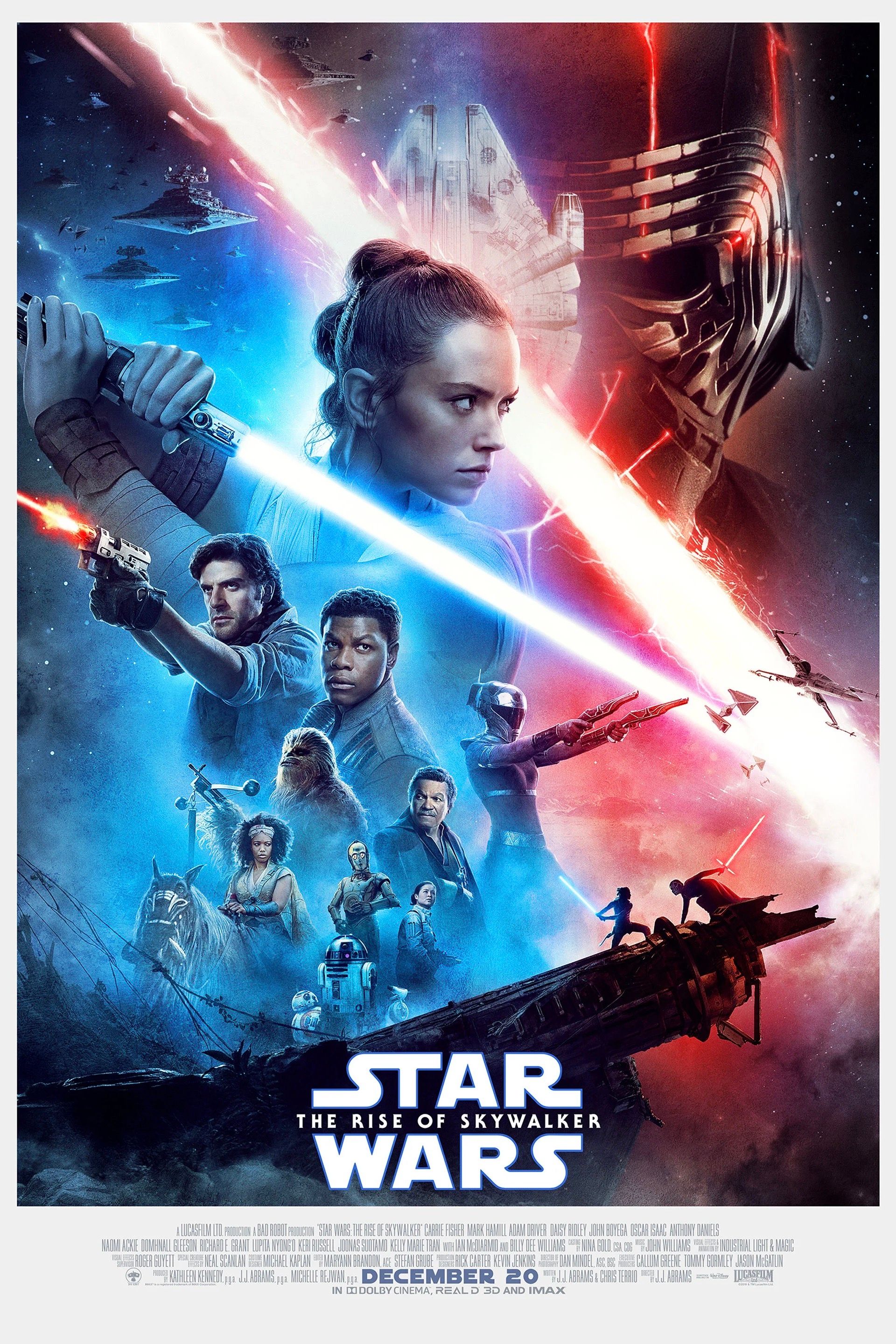Did the marketing for Star Wars: The Last Jedi lie? The truth is, like the Force, rather complicated; Lucasfilm never misled about the story, but they sure did about the tone."This is not going to go the way you think." The second trailer for The Last Jedi gave that quote a position of prominence. In the film itself, Luke makes the comment to Rey about her journey. In the context of the trailer, though, it was taken to be a warning to fans that this film may not be what many were expecting. Although the marketing carefully avoided dropping any hints of the subversive themes and plots that are integral to the movie, this was a signpost for the film's true intentions.Related: Star Wars: The Last Jedi's Audience Score Might Not Be GenuineThere's been a lot of debate since Episode VIII's release about how unexpected its many twists and turns are, with some fans so shocked they've started petitions to remove the film from canon. The discussion goes bigger than the marketing, but how a big a role did all the trailers play into this?The Trailers Didn't Lie About The Plot (This Page)
The First Teaser Showed Us Rey's Training
Let's start by examining the first trailer, released at Star Wars Celebration 2017. This teaser's main focus is on Rey and her training with Luke Skywalker. At the same time, the close leaves us realizing that Luke will not be teaching her how to become a Jedi; he thinks it's "time for the Jedi to end". For all this, a single scene of Rey's eventual training is used; Luke encourages her to reach out with the Force, then Rey describes three things: light, darkness, and a balance. The Resistance is presented as light, the shattered mask of Kylo Ren as darkness, and the ancient Jedi texts as a balance. Here, all of the main story beats are faithfully presented.
From the rest of the quick-fire footage of the trailer, we got a sense of the main locales and plot beats - fight on Crait, space battle above D'Qar - which again line up with what's expected. We even have a taste of Johnson's subversion care of the destruction of Poe's X-Wing. The only real point of contention would be Luke's final line, but even that was representative of his mood in the final film - the advertising just wasn't ready to elaborate further at this point.
The Second Trailer Was About Reylo
The second trailer goes even further. Once again, the dialog is leading: there's Luke's warning that this will not go the way we think; and Kylo Ren's twisted advice to "Let the past die. Kill it." The latter might as well be Johnson's motto in The Last Jedi; he takes the greatest symbols of the Star Wars past, and he either destroys them or subverts them. An iconic dark side mask? Mock it, then break it. Old leaders of the Rebellion like Admiral Ackbar? Kill them without a second thought.
Related: The Last Jedi's Snoke Reveal Is The Best Movie Twist In Years
In terms of plot, the most shocking element - and one that had many fans cry misleading or spoiler-filled advertising - was Kylo Ren offering Rey his hand. This does intercut two scenes in totally different locations - Rey is talking to Luke on Ahch-To, Kylo holding his hand on the Supremacy - and the inference is slightly adjusted, but there is a point in the film where the pair almost join forces out of a common ground and sense of loss. Again, the trailer faithfully sets up the main narrative.
The Last Jedi Trailers Together Point Towards The True Plot
What's most remarkable, though, is how the trailers were careful with what wasn't teased. Notice that Snoke is hardly present in the marketing at all; you hear some of his dialogue and catch a brief glimpse of the Supreme Leader, but there's little substance. It is easy to take as a mystery, but was really setting up that the film doesn't really care about him at all.
Yes, the trailers invited theories and inference to a movie that was ultimately heavy with subversion, but when you break them down, it's all very truthful and straight. The marketing never lied, it merely allowed the fans to do the misleading. At least when it comes to plot, that is.
The Last Jedi Subverts A Lot of Star Wars Ideas
Of course, the marketing carefully hides the film's subversive approach. Take, for example, the moment Rey offers Luke his long-lost lightsaber. Trailers and TV spots suggest that the movie would play the resolution of The Force Awakens' ending straight. Instead, Luke tosses the saber over his shoulder, and those expectations with it. The Last Jedi shows an irreverence when considering the dearly-loved symbols of the Star Wars mythos, a subversive bent not even hinted at in the marketing.
Related: Star Wars: The Last Jedi's Ending Explained
There are still subtle warnings that fans should expect a surprise. Luke's caution, that this will not go the way we think, is an important statement. But that's set up as a promise of even greater drama, suggesting dramatic plot twists. Instead, the surprise is that the film's twists tropes. The Emperor is slain, his backstory irrelevant; the hero's sacrifice is averted, and the Death Star cannon fires; the lightsaber is thrown away; the symbolic dark side helmet is broken and discarded. The marketing doesn't even hint at this.
The Trailers Hid All The Comedy
Perhaps where the marketing was most misleading, though, was the tone. Whereas the trailers were dark and somber, The Last Jedi arguably has more humor than we've ever seen in a Star Wars film before. The comedy starts pretty quickly, with Poe mocking General Hux and buying the Resistance time to evacuate (that comes to a head in a "your mother" joke, of all things), and there's a rich vein of humor running through the film.
"Marvel funny" is a prominent - and good - description of the movie's humor. It's certainly proving controversial, with some fans complaining that the franchise has lost its own identity as a result. The reality, however, is that Star Wars has always been informed by the popular culture of its time. Perhaps sensing that the humor would take fans by surprise, Rian Johnson was upfront about it in interviews. He's pointed out his goal was to capture the fun of the franchise, something he doesn't think his efforts oversteps, but also work against the "stigma" that the middle entry is the darkest.
Whatever the creative intention, this wasn't conveyed before. Although perhaps things go bigger.
Related: Star Wars Last Jedi: The Best Moments Even Fans Missed
Which Film Influenced The Last Jedi The Most?
The Force Awakens was essentially a rinse-and-repeat of the classic tropes explored in A New Hope. Although fans complained at the approach, that meant they were primed to watch the next The Empire Strikes Back. The marketing built up that sense of expectation, emphasizing story-beats that were reminiscent of Empire; Rey is training with an exiled Jedi Master while the retreating Resistance show down against the First Order walkers on a white-dusted planet.
In reality, the film draws far more on the tone and style of Return of the Jedi. It still has darkness and depth, but it rejoices in the childishness of the Star Wars universe. That was the movie that not only introduced us to the Ewoks, but had the cute teddy-bear creatures neutralizing crack Imperial Stormtroopers. Even the plot beats feel more like Return of the Jedi, in the end. Story-wise too, it's prominent, with the Throne Room directly calling Return out and the ending being almost an inversion.
-
The contrast between The Last Jedi and The Force Awakens is - without a hint of criticism - jarring. One plays the themes and concepts of Star Wars straight, the other is gloriously irreverent in its handling of them. Given J.J. Abrams is returning for Episode IX, it will be fascinating to see where the Sequel Trilogy goes from here.
Next: 5 Possible Titles For Star Wars: Episode IX

